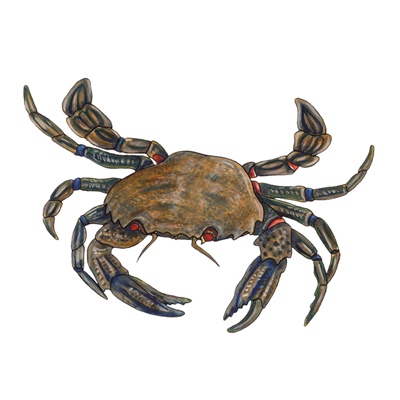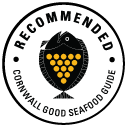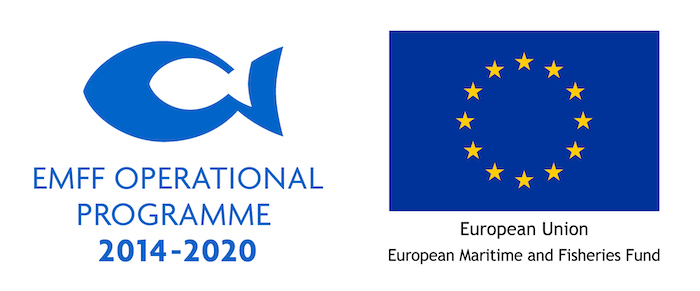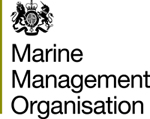

Velvet swimming crabs are small but tasty, spiny crabs that are very popular in Spanish cooking.
Velvet crabs are caught in relatively small quantities by pot fishermen, specifically targeting velvet and green crabs in the Fal estuary and are also caught as by catch in brown crab and lobster fisheries. Pot fishing is selective as small specimens can be returned un-harmed. Fishermen in the Fal only land male crabs and leave females in the sea to ensure the stocks are replenished. The vast majority of this catch is exported live to Spain.
In 2021 a total of 3.9 tonnes of velvet crabs were landed to Cornish ports with a value of £12.5k (MMO data).
Updated July 2023

Cornish vessels landing to Cornish ports
Caught in baited traps deployed on the sea bed.
Learn moreCornwall Good Seafood Guide rates fish on sustainability using a scale of 1 to 5.
1, 2 and 3 are recommended, Fish to avoid are rated 5.
We use the system devised by the Marine Conservation Society (MCS) so our scores are comparable with the scores produced by MCS for the UK and fisheries from all around the world. For more information on scoring click here.
Stocks of velvet crab are unstudied but landings are relatively constant and there are currently no signs that the stocks are being over exploited. Landings to Cornish ports between 2005 and 2011 were around 12 tonnes per year but in 2012 and 2013 there was a significant decrease in landings possibly due to reduction in market demand caused by recession in Spain. Landings have been around 3 tonnes per year with a slight increase in 2019 and 2020 to approx 4 tonnes per year. (Landings to Cornish ports - MMO data). There is no stock assessment carried out and there is no reserach that shows how sustainable this fishery is.
Currently there is no restriction on catches of velvet crabs. There is a minimum landing size 6.5cm minimum carapace width. You must have a commercial fishing licence to fish for velvet crabs. The market for this species is not well developed and currently the majority of landings are exported live on Vivier lorries to Spain. Velvet crabs are relatively fragile and need to be kept in floating store pots to ensure they are in good condition to sell to vivier lorries.
Caught using lightweight baited pots in a mixed shellfish fishery targeting green and velvet crabs. The Fal and other south coast estuaries are areas where this fishery is most commonly carried out.






Cornwall Good Seafood Guide is underpinned by the Marine Conservation Society (MCS) Good Fish Guide. The first UK consumer guide to sustainable seafood. For more information visit www.fishonline.org
Cornwall Good Seafood Guide is here to help us all make sustainable seafood choices. Choices that will help us keep the oceans healthy and Cornish fishers' futures safe. This website is funded by Cornwall Wildlife Trust. If you would like to make a meaningful difference to the health of our oceans, please consider making a donation to the Cornwall Wildlife Trust Ocean Emergency fund. Your donation will help safeguard these remarkable environments, ensuring that they continue to thrive for generations to come. Together, we can be stewards of the seas and champions for a healthier, more sustainable future.